With the accession of the Germantown Board of Aldermen Tuesday night to an agreement with Shelby County Schools (SCS), the last domino would seem to have fallen in a three-year-old saga of public-school reorganization in Shelby County.
More remains to be done —much more, given that the already complicated process of merging the public schools of Memphis with those of suburban Shelby County, a feat accomplished for the current academic year, must be put in reverse in August to accommodate a myriad of separate school systems.
The largest of these will be Shelby County Schools, which will essentially consist of the former Memphis City Schools (MCS) area, plus unincorporated areas of Shelby County at large and minus a sizable number of inner-city institutions that will be part of the state-run Achievement Schools District.
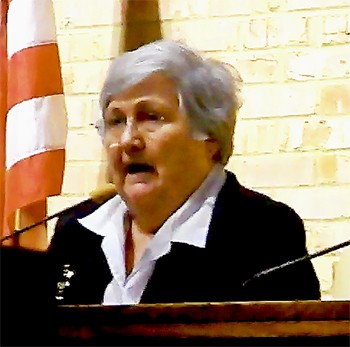 Jackson Baker
Jackson Baker
Mayor Sharon Goldsworthy
What used to be known as Shelby County Schools is now destined to be a series of small school districts in suburban Shelby County within incorporated municipalities. Separate districts will be operated by Germantown, Collierville, Bartlett, and Millington, with another one apparently to be administered jointly by Arlington and Lakeland.
In time, more inter-local arrangements could further link the new suburban districts administratively.
But within the week, a process which the Churchillian phrase “end of the beginning” might describe will apparently be accomplished.
The new Germantown School Board may or may not formally meet to ratify the agreement with SCS (its members have already acceded to it informally); the Shelby County Commission will have met to formally discharge its last remaining lawsuit, against Germantown, and presiding U.S. district judge Hardy Mays will have signed off on the end of litigation.
This last stage will be accomplished, appropriately, within hailing distance of December 20th, the third anniversary of the fateful vote on the old MCS board, which began the merger process.
• Germantown’s acceptance of the SCS terms, propounded more than a month ago by Superintendent Dorsey Hopson and his board, was fitted into the board of aldermen’s regular Monday night meeting, as add-on agenda item 5B.
Those terms, which involved the retention by SCS of three Germantown schools — Germantown High, Germantown Middle, and Germantown Elementary, which as a triad had a student population derived primarily from unincorporated Shelby County — had been a bitter bill and had been resisted during weeks of negotiation, but was finally swallowed by the board Monday night.
In introducing the resolution of agreement, Germantown mayor Sharon Goldsworthy said, “It lays a foundation on which our new school district can be formed.”
The board members had met for an hour with attorneys “in a litigation session” just before the public meeting, Goldsworhty explained, and she made it clear that the bottom-line message they had gotten was: You have no choice. She spoke of the numerous counterproposals the city had made in vain to the SCS board and said she was “keenly aware” that the agreement did not “address all our concerns.”
As the mayor would put it in a brief encounter with the media after the meeting: “Clearly, the Shelby County School board, I think there is general agreement, is responsible, it owns the schools, it holds them in trust for the education of children. … Ultimately, you have to recognize that the decision rests more with the Shelby County School board than with our desire.”
In other words, though Goldsworthy pointedly eschewed any use of the metaphor, SCS held all the cards. After all the tension of negotiations with SCS during the last month, the 4-0 vote by the board, sans debate, was a surprisingly pro forma affair.
In her conversation with the media, Goldsworthy was adamant that her city had fought the good fight: “Anybody who was a party to the negotiations knows that we did not roll over. We had completely and consistently asked for all eight schools, and we were willing to operate those in terms that we felt gave us an opportunity some time in the future to reexamine that.”
She spoke of having tried for a six-school option that left Germantown Elementary within the city’s own system but said “the other party,” SCS, would not agree on terms that were acceptable.
In the end, the new Germantown School Board had seen no alternative to accepting the agreement — which, as the mayor noted, at least allowed the city to move forward in creating a new school district for next year and the future beyond that — and neither had the city administration.
In the manner of the other five suburbs that had previously reached agreement with the SCS board, Germantown will acquire rights to five public schools through a process of making 12 annual payments — in Germantown’s case, at a rate of $355,453 per year, coming to something like $4.25 million.
As in the other cases, there is no one-to-one purchase arrangement. Technically, the money will be used to help offset SCS retirement obligations, while the deeds to school properties will be made over separately.
• Among several controversial matters scheduled to be taken up Wednesday in committee meetings of the Shelby County Commission will be one introduced by Republican member Wyatt Bunker expressing a position of “no confidence” in Rich Holden, current Shelby County administrator of elections.
Bunker, who was recently elected mayor of Lakeland and has tendered his resignation from the commission, effective January 3rd, said he had been encouraged to take the step by numerous Republican public officials and other prominent members of the GOP.
“This is long overdue, and it needed to come from the Republican side,” Bunker said. The oft-beleaguered Holden is a Republican who was appointed administrator by the GOP-dominated Shelby County Election Commission (SCEC) in 2009.
Bunker said he anticipated that a majority of his fellow commissioners, both Democrats and Republicans, would support his resolution. He acknowledged that some Republicans considered calls for Holden’s resignation to be the result of partisan Democratic pressure, but he said his own opinion, augmented by increasing dissatisfaction with Holden in GOP ranks, was that the administrator had to be held accountable for failure to stem a tide of election glitches that have occurred on his watch.
“If people were demanding that something be done after only six months or so on the job, you could say that was premature, that he should be given a chance, but he’s been there for five years, and the evidence is that he’s either unwilling or unable to do the job,” Bunker said.
The resolution of “no confidence” will be introduced in the commission’s general government committee on Wednesday, Bunker said, and will be accompanied by documentation from local and official state sources, including reprimands of the SCEC and its administrative arm by state election coordinator Mark Goins.
• Yacoubian Research, an established Memphis polling firm, has conducted what it said was an independent poll of likely voters regarding a Democratic primary contest in the 9th Congressional District between incumbent congressman Steve Cohen and his potential challenger, lawyer Ricky Wilkins.
The poll, involving some 204 respondents in the 9th District, found Cohen prevailing by a margin of 76 percent to 11 percent, with 13 percent expressing themselves as unsure.
A second question was asked of both 9th District voters and a sample of 414 Shelby County voters at large: “If Congressman Steve Cohen were to endorse a Democrat for Shelby County mayor against Republican Mark Luttrell, would this make you more likely or less likely to vote for him?”
Within the 9th District, 51 percent pronounced themselves “more likely,” as against 10 percent who said “less likely” and 39 percent who said there would be no difference. Percentages for the larger county sample were: 35 percent “more likely”; 26 percent “less likely”; and 39 percent no difference.
Cohen led Wilkins in all age, race, gender, and geographic groupings, with his greatest strength among African-American males (83 percent) and white females (88 percent). Wilkins is African-American.
In only one category, an infinitesimally small sample of Republicans intending to vote in the Democratic primary, did Wilkins lead Cohen. The vote there was 2 to 0.
Yacoubian’s conclusion: “In sum, Congressman Steve Cohen continues to be the overwhelming favorite in the August 2014 Democratic Primary for 9th District Congress.”
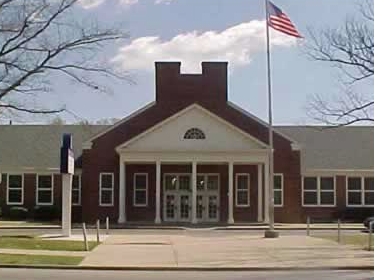
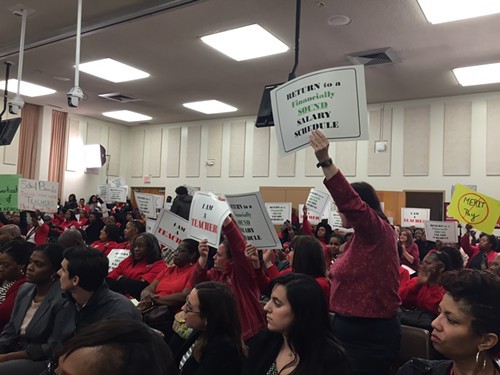
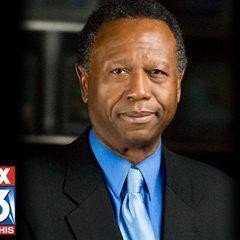

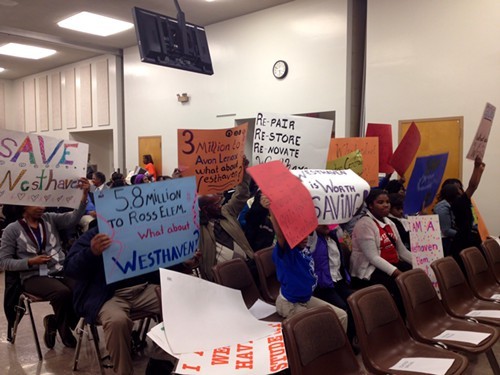
 Jackson Baker
Jackson Baker  Jackson Baker
Jackson Baker